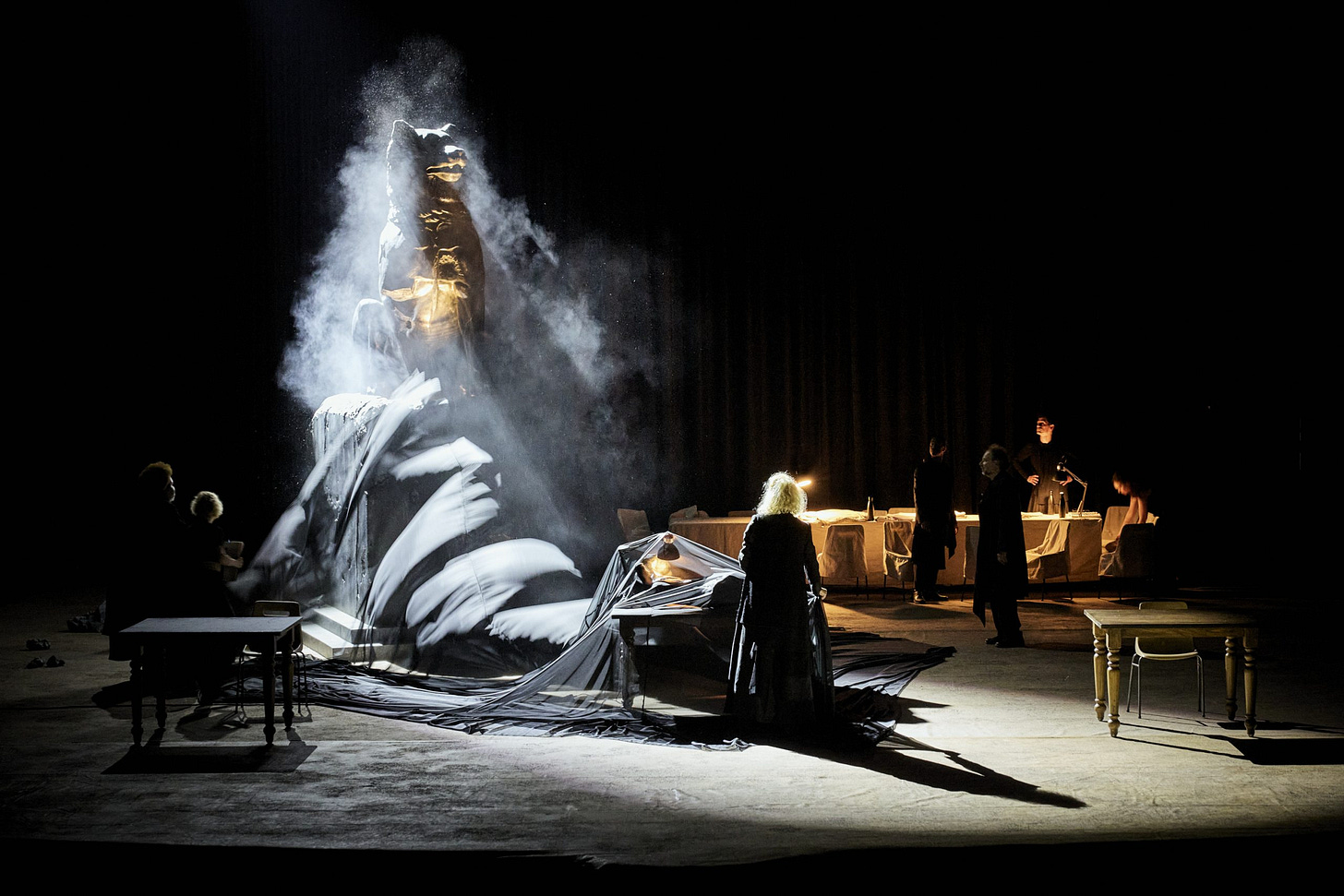A little tenderness: Tiago Rodrigues' Hecuba, Not Hecuba
On a play that fuses Greek tragedy with a contemporary narrative about social care.
This is the September bonus edition for my growing number of paid subscribers. I’m really grateful for your support. It makes a real difference. If you too want to become a paid supporter, you can do so for £5 a month or £50 a year. There will also be a regular free-to-read newsletter in your inbox on Wednesday.

The first time I saw Hecuba, Not Hecuba, Tiago Rodrigues’ new production for the Comédie-Française, it was at the Ancient Theatre of Epidaurus. This is – you probably don’t need me to tell you - an extraordinary space, an open-air arena dating back to the fourth century BC, capable of seating 10,000. The audience sit on ancient stones as the sky slowly darkens overhead, the surrounding trees taking on a silvery quality in the moonlight. Occasionally bats flutter across the velvety sky. Seeing a show here is an experience, one forever etched in memory, the classical and modern worlds colliding in a remarkable setting, the cradle of theatre itself. It is truly awe-inducing, time seemingly concertinaing around you.
All of which is to say that when I first saw Rodrigues’ play, I was wowed. But how much of that was down to the setting? To the historic weight of those stones? Hecuba, Not Hecuba premiered this summer in a similarly dramatic location, in the Boulbon quarry just outside Avignon, where he is of course artistic director, though aside from Epidaurus the rest of its European tour takes place in more conventional indoor spaces.
While Rodrigues’ production takes inspiration from the play by Euripides, it is at the same time, a contemporary text about the care system and the responsibility of the state towards its most vulnerable citizens. Rodrigues has merged a Greek tragedy about a woman seeking revenge following the death of her son, with a real-life story inspired by one of his former collaborators. In the show, a group of actors are rehearsing a production of Hecuba, but one of their number, Nadia, is also in the process of taking legal action against the care home that mistreated her autistic child.
I saw the performance for a second time this week, in Belgrade’s National Theatre, a grand 19th century theatre with red velvet seats and proscenium arch stage, where it was being staged as part of this year’s BITEF. What was it like revisiting it in this more traditional environment? How did it hold up?
Keep reading with a 7-day free trial
Subscribe to Café Europa to keep reading this post and get 7 days of free access to the full post archives.



